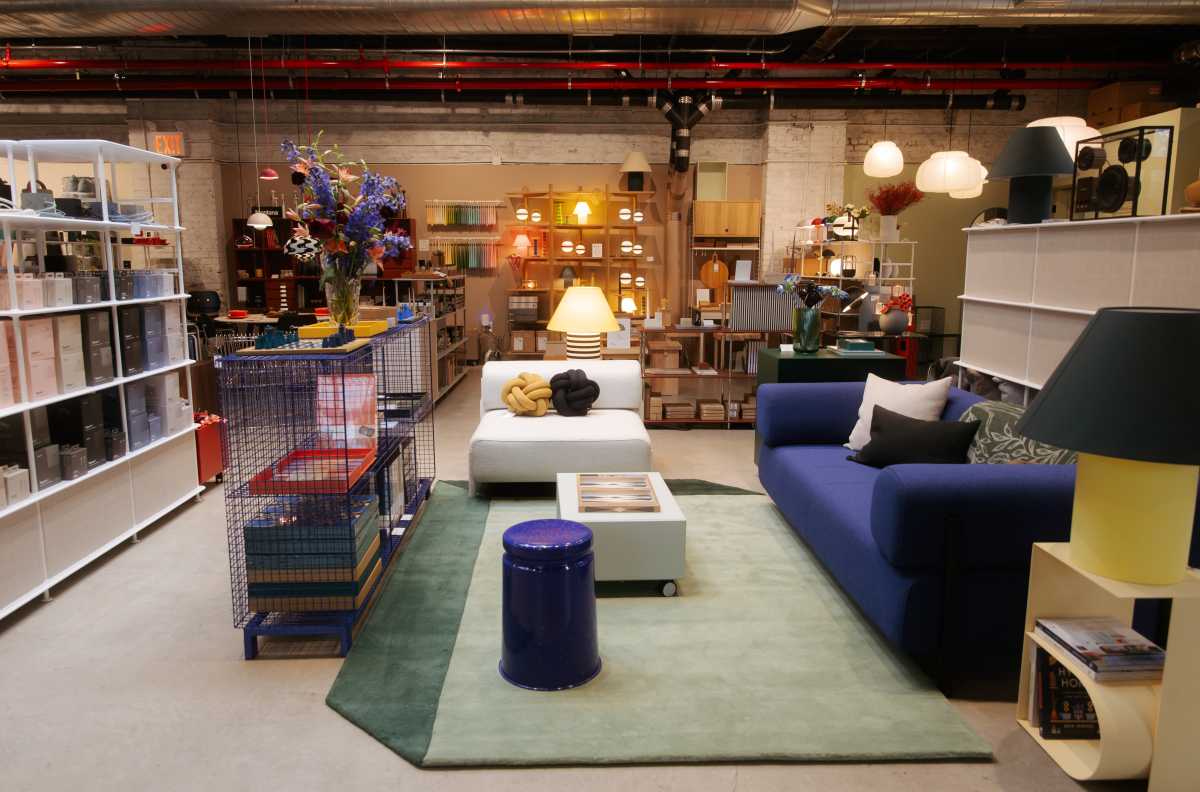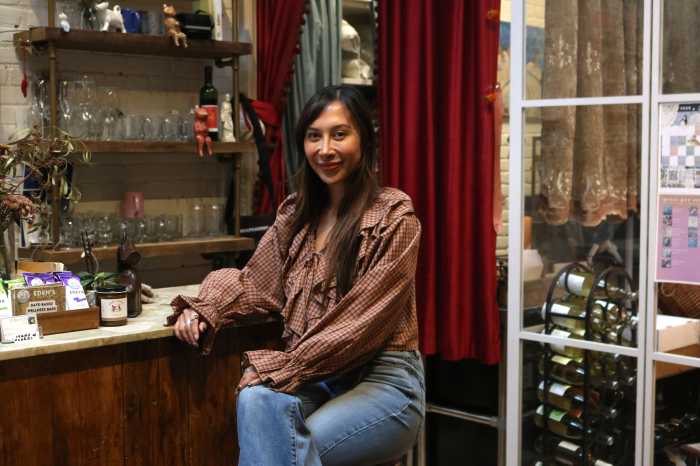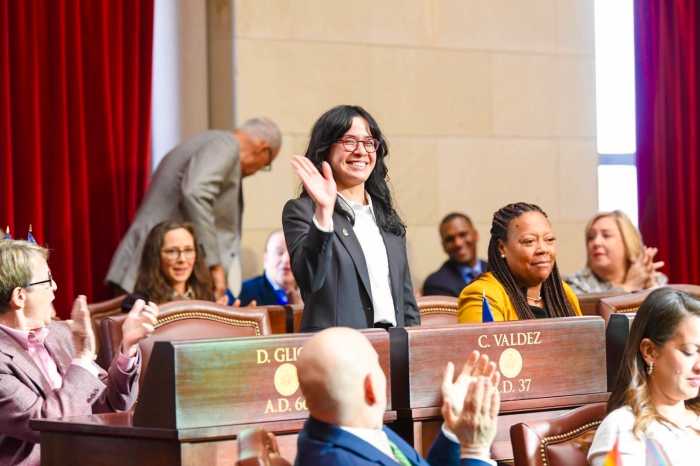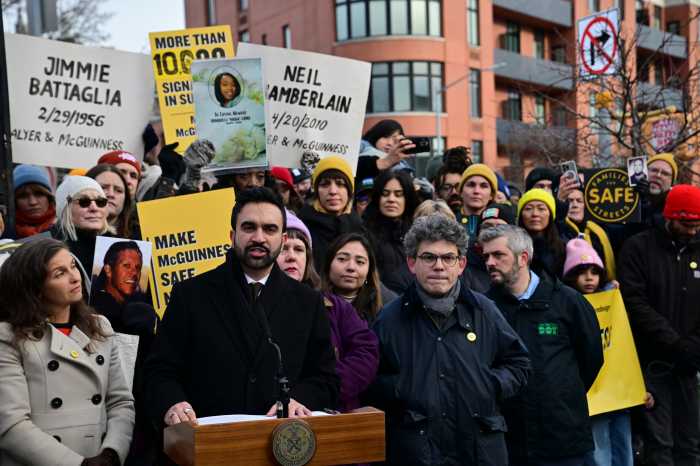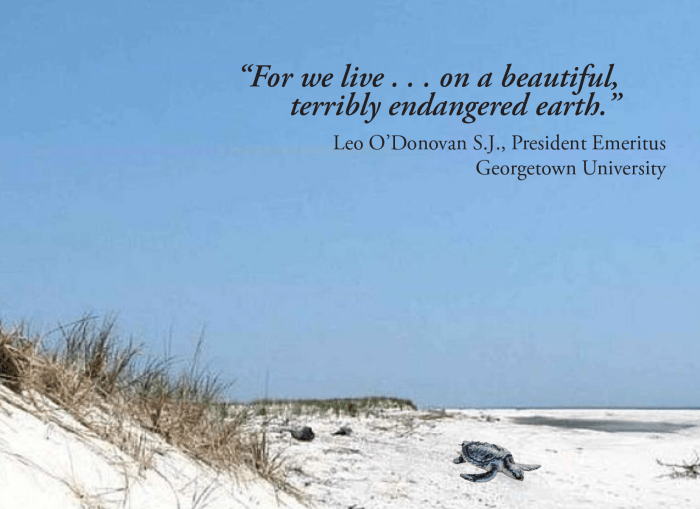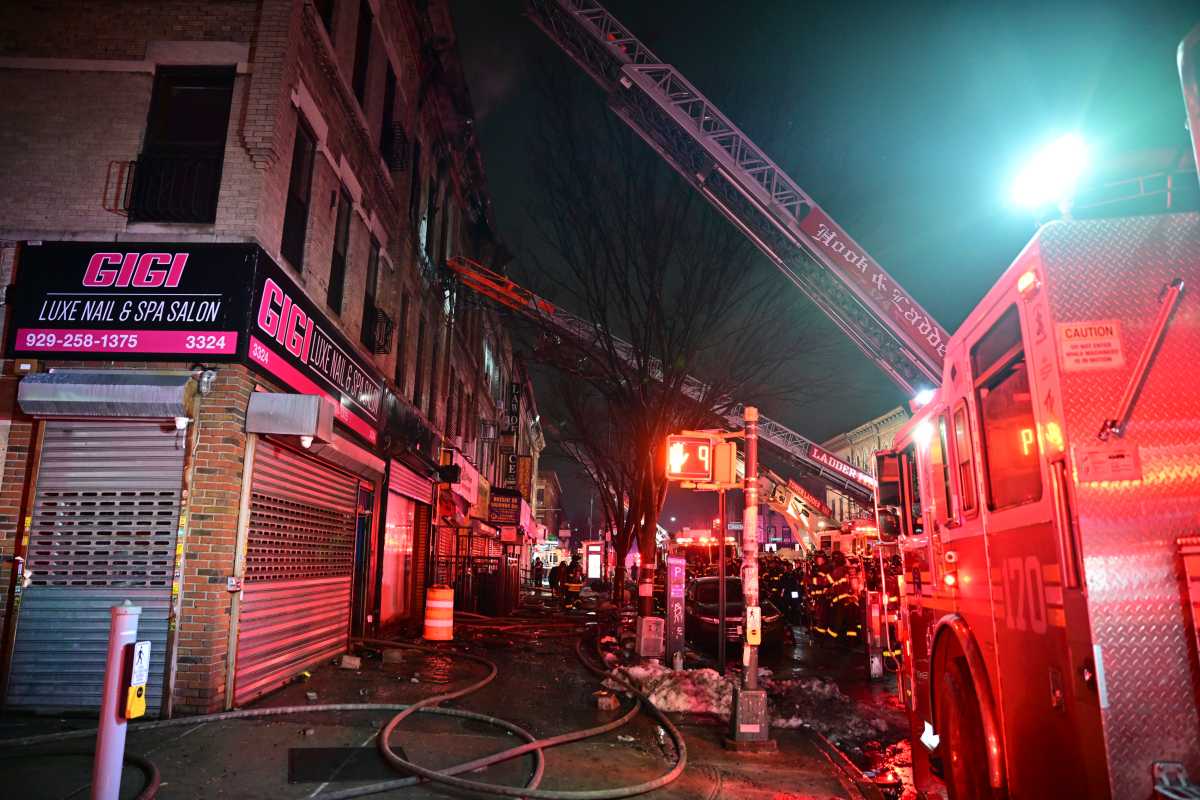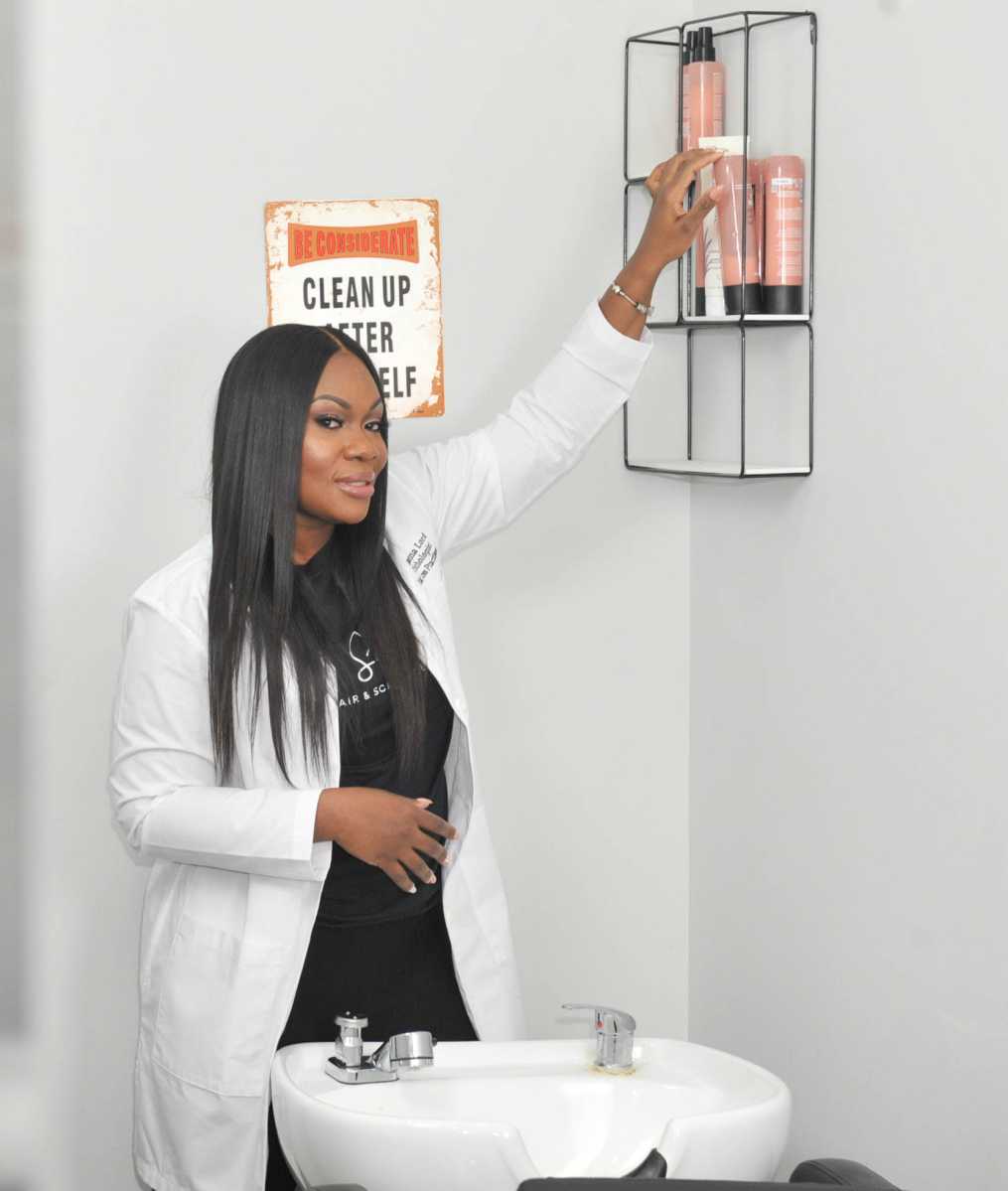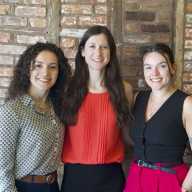Just one year ago, Caitlin Maestrini opened the doors to Teak New York’s flagship location at 34 Norman Ave. in Greenpoint. The 4,000-square-foot space marks a major leap from the modest 600-square-foot storefront she had founded a year earlier.
“I knew it was going to be a huge change,” Maestrini told Brooklyn Paper. “But I also knew I was ready.”
Teak New York, which specializes in Scandinavian contemporary design, has grown from a longshot pop-up to a serious player in Brooklyn’s high-end home furnishings scene. But the anniversary isn’t just about square footage — it’s about making leaps and taking risks.
Maestrini’s journey began far from New York, growing up in rural Pennsylvania, outside of Johnstown — a town where she says career paths were often limited.
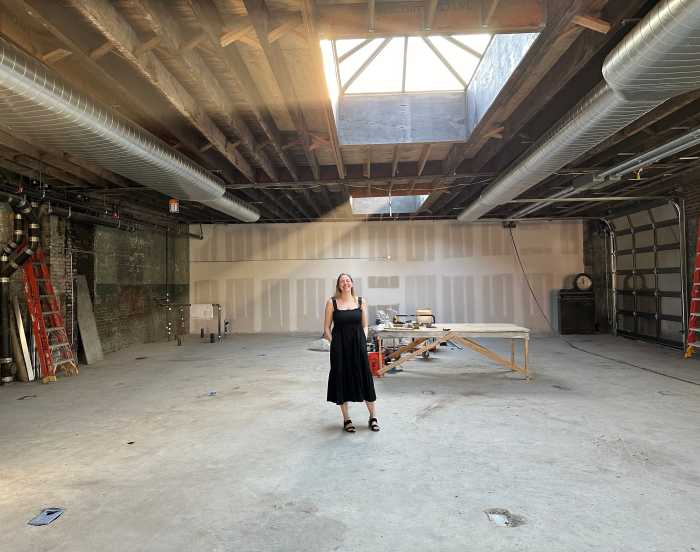
She studied art in college, started her career as a high school teacher and later transitioned into the design world through a graduate program at Sotheby’s Institute of Art. It was there that she studied in Europe for a semester, falling in love with the style of Scandinavian countries like Sweden, Denmark and Norway.
“When I got back home, I realized that no one was selling true Scandinavian furniture,” Maestrini said. “I was buying vintage things, but really loved teak wood and was collecting vintage pieces.”
While working at a different design company, she took notice of retail spaces, which made her question her passions. She felt she didn’t have the opportunity to be more creative and take on responsibilities — so she opted to do it herself.
After Maestrini recognized the gap in the market for Scandinavian contemporary design, Teak was born in March 2022 at a weekend pop-up in NoHo, which ran for a year. Maestrini said each day was a learning experience, focused on education and sustainability practices.
“I never bring in something I don’t believe in or something I haven’t seen first,” she said, adding that she’s committed to avoiding “fast furniture.”
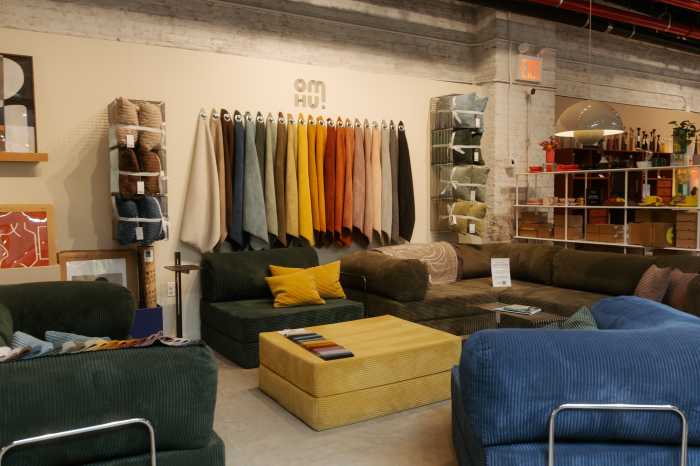
After being laid off from her job in 2023, Maestrini decided to take the leap and turn Teak into a boutique. That year, Teak’s first 600-square-foot storefront at 42 West Street in Greenpoint became a reality.
After much success, she decided to expand, moving to its current location in the same neighborhood. Maestrini said creating the new space was the “hardest thing [she’s] ever done.”
“I had to do the electricity, plumbing, sprinklers, lighting — everything else that is legally required of a building was in my hands,” she said. “I tried project managing it by myself and then eventually had to hire a construction manager to finish it off.”
Then came maximizing the space, creating shopable living spaces from the customer’s perspective.
“You have to take a step back and see how people are interacting with things,” she said. “Are they taking a seat here? Are they looking at this item?”
The new expanded space isn’t just a store, it’s blossomed into a community hub — a “third space” as Maestrini described it. In collaboration with the Scandinavian deli Falu House, she incorporated an IKEA-style concept with an in-house café.
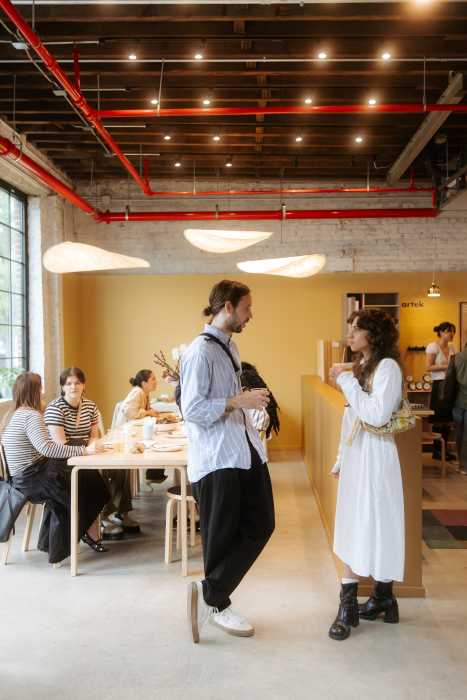
“Not only do you get to experience how people live and what products they live with, but now you can also, you know, have a coffee break in the afternoon. That’s the Swedish ‘fika’ concept,” Maestrini said. “You can come by in the morning if you want and grab a cinnamon bun or a cardamon bun.”
The shop also hosts events in partnership with other local brands, like candle-making and flower-arranging workshops.
“We’re always trying to just engage the community, and giving them resources and things that they might be interested to learn about,” Maestrini said.
As for Teak’s future, Maestrini would love to open up a second location — in Manhattan, Boston or Washington D.C. Earlier this year, her team opened a pop-up in Los Angeles and was able to host fundraisers for people affected by the wildfires. But at the end of the day, she’s committed to fostering the sense of the “third space” in all facets of her business through the “hygge” (pronounced hoo-ga) mentality, a Danish word that means feeling cozy in all aspects of life.
“We need to come home after the hustle and bustle of New York after you’ve taken that subway train and you’re just exhausted, you need to come home and have a sanctuary at home,” she said.


